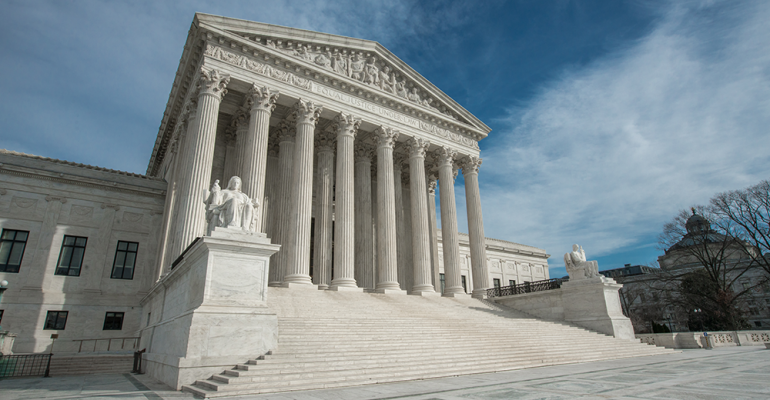Financial advisors should heed a recent opinion by the U.S. Supreme Court that clarified who can be held liable for fraudulent investment schemes, according to securities attorneys. In short, if an advisor knowingly lies about or deceives a client about a security, they can't blame someone else.
The justices, voting 6-2, said Francis V. Lorenzo, a banker who worked at New York-based broker/dealer Charles Vista LLC, could be found liable for taking part in a fraud even if he didn’t write two deceptive emails he sent to investors. Lorenzo, pointing to a 2011 Supreme Court ruling that limited who could be held legally responsible for making false statements about securities, argued that his boss wrote the emails and he wasn't responsible for the content of them. The court's ruling against him, and in favor of the Securities and Exchange Commission, upholds a federal appeals court.
Ilene Jaroslaw, a partner at Phillips Nizer and former Assistant U.S. Attorney in the Eastern District of New York, said the ruling was "legally unremarkable" and that Lorenzo's argument that he should have been insulated "runs counter to the plain language of [Rule 10b-5] and counter to common sense."
Still, the ruling on Wednesday addressed a dilemma the court created for itself in Janus Capital Group Inc. v. First Derivative Traders, the 2001 case Lorenzo referred to in his defense, said Thomas Gorman, a partner at Dorsey & Whitney.
“The Court made clear today that its prior ruling in Janus, which found liability for only the 'maker' of a false or misleading statement, could not be read to enable knowing distribution of false information. That’s a good development for the integrity of our financial markets,” Dixie Johnson, Securities Enforcement partner at King & Spalding said in a note.
The ruling halts a trend of Supreme Court rulings that had trimmed the SEC’s authority. The decision also bolsters the rights of private investors, giving them more power to press lawsuits claiming deception.
"There was wrongful misconduct here, and the court's decision ensures that the SEC does not have its hands tied trying to combat fraud and protect investors," Christine Lazaro, a professor at St. John's University School of Law, said.
The SEC judge fined Lorenzo $15,000 and barred him from the securities industry for life. A federal appeals court upheld the finding of scheme liability, though the panel ordered reconsideration of the penalties after throwing out claims that Lorenzo had made false statements.





